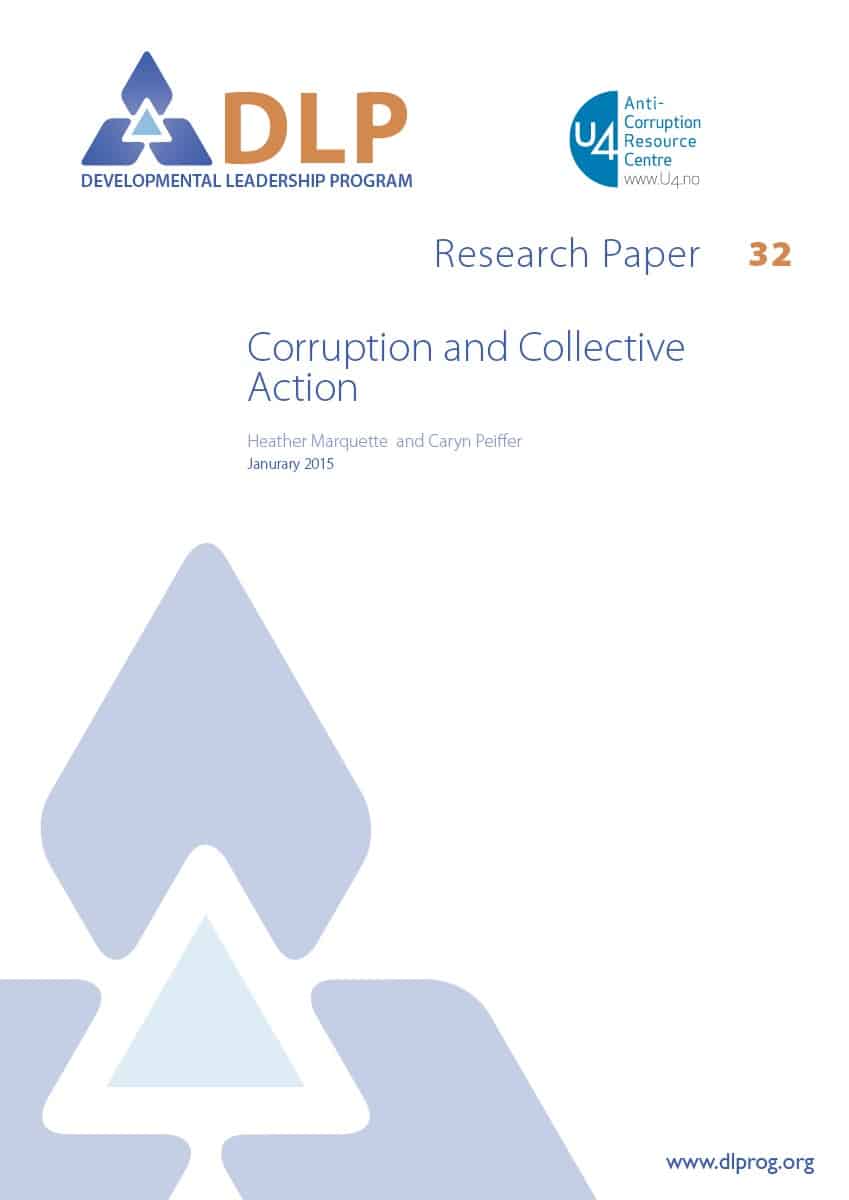Despite significant investment in anti-corruption work over the past 15 years, most systemically corrupt countries are considered to be just as corrupt now as they were before the anti-corruption interventions. A growing number of authors argue that anti-corruption efforts have not worked because they are based on inadequate theory, suggesting that collective action theory offers a better understanding of corruption than the principal-agent theory usually used.
This paper, published in collaboration with the U4 Anti-Corruption Resource Centre, argues that both theories are in fact valuable. But both miss out an important third perspective, which is that corruption can serve important functions, solving difficult problems that people face, especially in weak institutional environments. Effective anti-corruption initiatives are so hard to achieve because they often require insights from all three of these perspectives.
- Corruption as a principal-agent problem: Principal-agent theory highlights the role of individuals’ calculations about whether or not to engage in or oppose corruption; the influence of transparency, monitoring, and sanctions on those calculations; and the technical challenges of monitoring and sanctioning corrupt behaviour.
- Corruption as a collective action problem: Collective action theory highlights the relevance to individuals’ decisions of group dynamics, including trust in others and the (actual or perceived) behaviour of others. When corruption is seen as ‘normal’, people may be less willing to abstain from corruption or to take the first step in implementing sanctions or reforms. This theory highlights the challenges of coordinated anticorruption efforts.
- Corruption as problem-solving: Corruption can sometimes provide a way of dealing with deeply-rooted social, structural, economic and political problems. Anti-corruption interventions need to better understand the functions that corruption may serve, particularly in weak institutional environments, and find alternative ways to solve the real problems that people face if anti-corruption work is to be successful.
Each perspective—corruption as a principal-agent problem, corruption as a collective action problem, and corruption as problem-solving—adds to our understanding of the challenges that anti-corruption efforts face. They suggest the following considerations.
- Effective anti-corruption initiatives will be driven by the context, not the theory. Different perspectives on corruption may be most useful in particular contexts and circumstances. For example, principal-agent theory inspired interventions like monitoring, transparency and sanctions may have a big impact in contexts where corruption is relatively isolated, but in other contexts could backfire by increasing public perceptions that corruption is pervasive, risking inducing a sense of ‘corruption fatigue’ among potential challengers and reformers.
- Collective action problems are sometimes deliberately crafted, and maintained to undermine the effectiveness of institutions meant to challenge corruption.
- Effective anti-corruption initiatives need to recognise and engage with the real political dynamics that underpin corruption, as well as to address the perception that corruption is ‘normal’, when it exists.
- Understanding the functions that corruption performs for those who engage in it, and trying to provide alternative solutions, are likely to be important first steps for any effective anticorruption intervention.
- Coordinated action, such as that provided by a reform coalition, will be important in addressing corruption, so it may be helpful to consider how such a coalition might arise: the most pressing collective action problem may be not corruption itself, but the formation of a strong coalition that can coordinate efforts to tackle it.
Further research by DLP and the U4 Anti-Corruption Resource Centre will explore the different contexts and circumstances in which each of the three theoretical lenses are likely to be most appropriate, followed by empirical case study research, to inform the development of more contextualised, and potentially more effective, anti-corruption programming.











